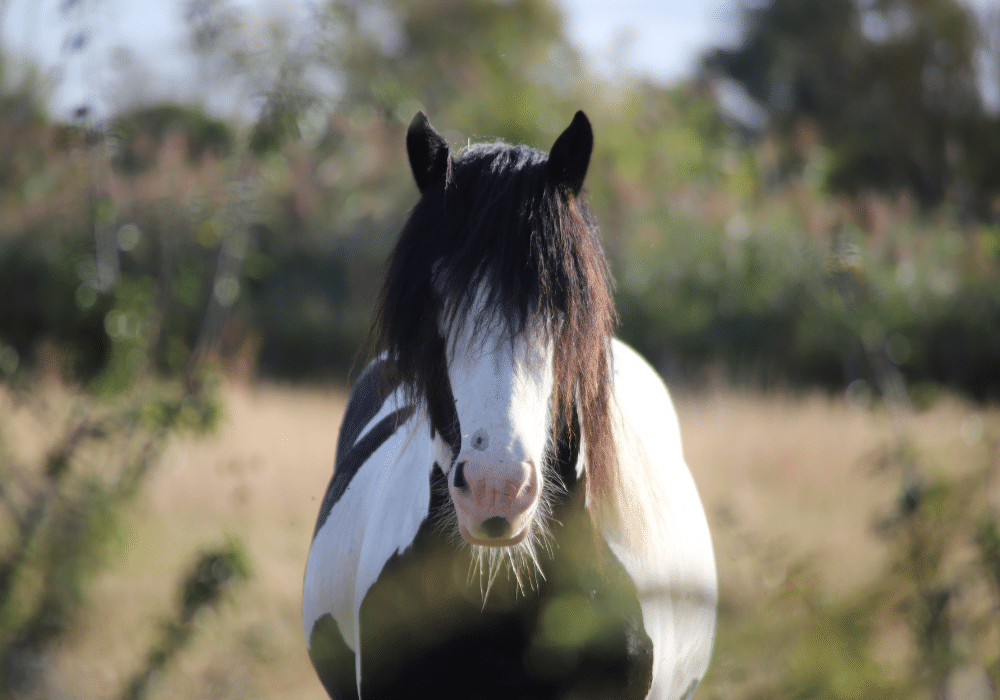Pituitary pars intermedia dysfunction (PPID), often known as equine Cushing’s disease, is common in older horses. Horses and ponies with PPID require effective management and veterinary supervision to maintain a good quality of life. But what is PPID? This blog article outlines what PPID is, how it affects horses and what can be done to manage the condition.
What is PPID?
The pituitary gland has a major role in regulating hormones, which in turn control many functions within the horse’s body. PPID affects the mechanisms within the pituitary gland (specifically the pars intermedia region) that control hormone production. This leads to the overproduction of normal hormones, which disrupts a range of functions.
Hormones that tend to increase in horses with PPID include adrenocorticotropic hormone (ACTH) and other steroid hormones. These can lead to delayed coat shedding, weight loss, behavioural changes and frequent infections.
PPID primarily affects horses over the age of 10, with older horses being more susceptible. It is common in aged horses and ponies but is rare in younger horses. The average age of horses diagnosed with PPID is 20 but it has been recognised in horses as young as 7 years of age.
Symptoms of PPID
The symptoms of PPID are varied and relate to the disruption of hormone inhibition. Symptoms include a long, thick, wavy coat (even in warmer months), weight loss, lethargy, increased or abnormal sweating and increased drinking and urination. Horses and ponies with PPID are more susceptible to infections and conditions such as laminitis.
Some horses with PPID also suffer from insulin dysregulation, which is when the horse has abnormal glucose and fat metabolism. This places the horse at a higher risk of developing laminitis. Laminitis may occur in the form of frequent, mild episodes to begin with. However, these mild episodes cause hoof damage, which accumulates over time and can result in severe lameness.
The symptoms of PPID can be debilitating and severely affect a horse’s quality of life. By diagnosing PPID early and putting in place a suitable management plan, horses with PPID can maintain a good quality of life for longer.
How is PPID Diagnosed?
Diagnosis of PPID is based on hormone tests as well as the horse’s history and symptoms. Diagnosing PPID may be more difficult in the early stages of the disease as the hormone tests may provide false negative results. Furthermore, early symptoms can be linked to other conditions. Repeat testing over time may therefore be warranted.
How is PPID Treated and Managed?
PPID is incurable, but it is manageable. Your vet may recommend medical treatments as well as changes to the horse’s management. The mainstay of medical treatment is a drug called Pergolide, which helps to decrease the horse’s excessive hormone production.
Dietary changes may be recommended, particularly in horses that also have insulin dysregulation. Horses with PPID may have more complex dietary requirements due to the need to minimise the risk of laminitis developing, whilst also helping the horse to maintain a healthy weight. Furthermore, older horses are more likely to experience dental issues (both PPID and age-related), so they may be less able to chew effectively.
Other good management practices, such as dental care, effective parasite control, vaccination and farriery are also key to maintaining the horse’s quality of life. Horses that retain their coats may also require clipping to keep them comfortable in the warmer weather. Clipping can also be used for weight management during the colder months.
Avonvale Equine Vets | Independent Equine Vet Practice
PPID can be a debilitating, long-term condition. Early diagnosis and effective management are key to maintaining the horse’s quality of life for as long as possible. Our experienced equine vets can advise on and assist with the diagnosis, treatment and management of PPID and our team are always here to help. Register your horse, pony, donkey or mule with us today.








